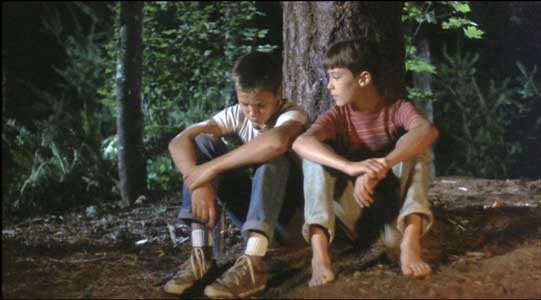Psycologist Robert Epstein doesn't like adolescence.
Psychologist Robert Epstein argues in a provocative book, "The Case Against Adolescence," that teens are far more competent than we assume, and most of their problems stem from restrictions placed on them.
The whole culture collaborates in artificially extending childhood, primarily through the school system and restrictions on labor. The two systems evolved together in the late 19th-century; the advocates of compulsory-education laws also pushed for child-labor laws, restricting the ways young people could work, in part to protect them from the abuses of the new factories. The juvenile justice system came into being at the same time. All of these systems isolate teens from adults, often in problematic ways.
The factory system doesn't work in the modern world, because two years after graduation, whatever you learned is out of date. We need education spread over a lifetime, not jammed into the early years"”except for such basics as reading, writing, and perhaps citizenship. Past puberty, education needs to be combined in interesting and creative ways with work. The factory school system no longer makes sense.
Imagine what it would feel like--or think back to what it felt like--when your body and mind are telling you you're an adult while the adults around you keep insisting you're a child. This infantilization makes many young people angry or depressed, with their distress carrying over into their families and contributing to our high divorce rate. It's hard to keep a marriage together when there is constant conflict with teens.
We have completely isolated young people from adults and created a peer culture. We stick them in school and keep them from working in any meaningful way, and if they do something wrong we put them in a pen with other "children." In most nonindustrialized societies, young people are integrated into adult society as soon as they are capable, and there is no sign of teen turmoil. Many cultures do not even have a term for adolescence. But we not only created this stage of life: We declared it inevitable. In 1904, American psychologist G. Stanley Hall said it was programmed by evolution. He was wrong.
He has me convinced. My own experiences reflect this. My parents homeschooled me. By my early teen years, I was ready to get out of the house and start doing more. A mutual friend taught me about relational databases, then offered me a job working for his web startup company. I remember being totally astonished that I had to get permission from City Hall (literally), in order to work at age 15. (Actually, I couldn't work at age 15. I had to wait until I was officially 15½.)
Even at such a young age that policy angered me -- I wanted to work, I wanted to do more, and my parents were supportive of that. The state, however, assumed that I was incompetent and that my parents were exploitative. Thankfully, the waiver was easy to obtain. But it shouldn't even be necessary any longer. Factories no longer thrive on grunt labor. American factories require workers with lots of skill and expertise. Our economy is fundamentally different than it was in 1900. Repealing the overly restrictive child-labor laws would not lead to an increase in child labor -- except in those situations where young adults are hungry for a chance to work.
Ironically, because minors have only limited property rights, they don't have complete control over what they have bought. Think how bizarre that is. If you, as an adult, spend money and bring home a toy, it's your toy and no one can take it away from you. But with a 14-year-old, it's not really his or her toy. Young people can't own things, can't sign contracts, and they can't do anything meaningful without parental permission"”permission that can be withdrawn at any time. They can't marry, can't have sex, can't legally drink. The list goes on. They are restricted and infantilized to an extraordinary extent.
I was also frustrated, as a teenager, by the banking restrictions. I learned to manage my money at a young age. I'm fairly certain that my parents opened my first account when I was 13. Again, I was surprised to find that I wasn't allowed to have my own bank account (my parents were co-signers on the account) or credit card until age 18. I was reasonably mature, I was capable of handling my finances, and I didn't understand why the State insisted on treating me as a child.
If my daughter matures as quickly as my wife and I did, I intend to do everything I possibly can to help her skirt these ridiculous laws and regulations. I'll help her open a bank account, I'll help her get work permits, I'll probably even put her on my credit account -- there's no sense in treating her like a child if she acts like an adult.


